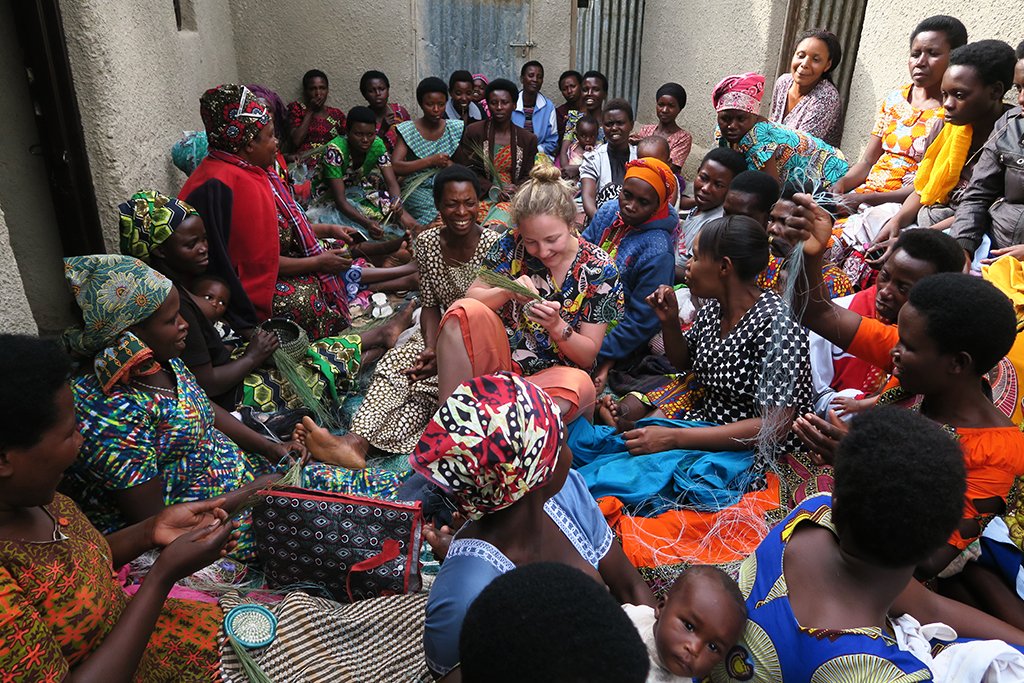Earth Day is an annual event on April 22nd to demonstrate support for environmental protection. First held on April 22nd 1970, the event is now observed by 1 billion people in more than 193 countries. Many important environmental events have happened on Earth Day since 1970, including the signing of the Paris Agreement, as Earth Day continues to be a momentous and unifying day each and every year. In fact, last year the Biden Administration decided to convene a global climate summit on Earth Day 2021. This year's theme is 'Invest in our Planet', with a focus on the need to come together to preserve and protect our health, our families, our livelihoods from climate change and environmental destruction. You can read more about Earth Day and ways to get involved here. We wanted to take this opportunity to share with you the ways in which we as a business are working towards a greater sustainable practise and the measures we take to help protect our environment.

A quote we often live by is "Demand quality, in the products that you buy and in the lives of the people who made them" Orsola De Castro. One of our key values is community, we believe collaboration is the key to a more connected future. We know that every person deserves a good quality of life and that this is possible if we share resources wisely. Because we work with artisans all around the world, it is important to us to be mindful of how we produce products and of our global supply chain. As air travel becomes more and more detrimental to the planet’s wellbeing, it is not ideal to travel to different countries to oversee our artisans every few months to check production and quality, so instead we choose contacts who we feel have the interests of the artisans at heart. We build solid working relationships so that we can continue communications back in the UK, reducing the need to travel but ensuring the welfare of our artisans. We believe supporting our artisans and their communities is vital to ensuring a sustainable future not just for our business, but for the Earth. You can read more about our supply chain here.

We always ensure that the products we sell are fairly traded. For our smaller producers becoming Fair Trade certified can be costly therefore we will always work to the 10 principles of Fair Trade. This includes checking there is no child labour and that working conditions meet our high social and environmental standards. We like to establish long term relationships rather than changing producers often in order to drive down prices, this ensures that everyone gets a fair deal. We have worked with some of our artisans for a very long time, like our weaving groups in Kenya. Every single one of the baskets we sell in store is hand-picked from the fantastic array of colourful baskets that these women make by our Head of Adventure, Bee. We send the baskets over in staggered shipments, meaning that we get a steady supply of new baskets by sea which is far more environmentally friendly than transporting them by air freight. The sale of our baskets encourages traditional basket weaving to continue being handed down from generation to generation, keeping century old skills alive. This area of rural Kenya is rife with poaching and charcoal burning - both a lucrative form of income in an area where jobs are very scarce. Creating alternative revenue streams such as basket weaving helps conservation by decreasing the need for these harmful practices. One of the reasons we love working with our small-scale artisans is seeing the positive effects buying ethically has on the communities. Read more about our fairly traded practices here.

We work with many recycled materials when producing our products which was an incredibly important decision to us in order to make our products as sustainable as possible. We work with recycled brass and aluminium for products such as our jewellery and our Ghanaian Brass Hooks, utilising these surplus materials from several industries to ensure our efforts towards zero waste. Brass is a non-ferrous metal (the same as aluminium, copper and stainless steel) which means it is easier to recycle and reuse. Despite this, £36,000,000 worth of aluminium is thrown away each year, and if all cans in the UK were recycled, we would need 14 million fewer dustbins. We also use 100% recycled paper in all of our paper products such as our Indian Paper Light Shades and our packaging. Despite being one of the worlds most easily recyclable materials, 4 billion trees are cut down every year to make new paper worldwide. That’s 1% of the Amazon Rainforest every single year. In fact, it takes 70% less energy to recycle paper than it does to make it new from raw materials, and it takes only 6 days to turn old newspapers, books, and magazines into new ones. That is why it is so important to us to reuse and recycle paper in every single part of our business practise. You can learn more about how we use recycled materials here.
Sustainability has been and will always be at the heart of what we do. We believe there are always ways to improve, and we are constantly striving to better ourselves and our business to help ensure the future of our planet. You can read more about Earth Day and ways to get involved here.







